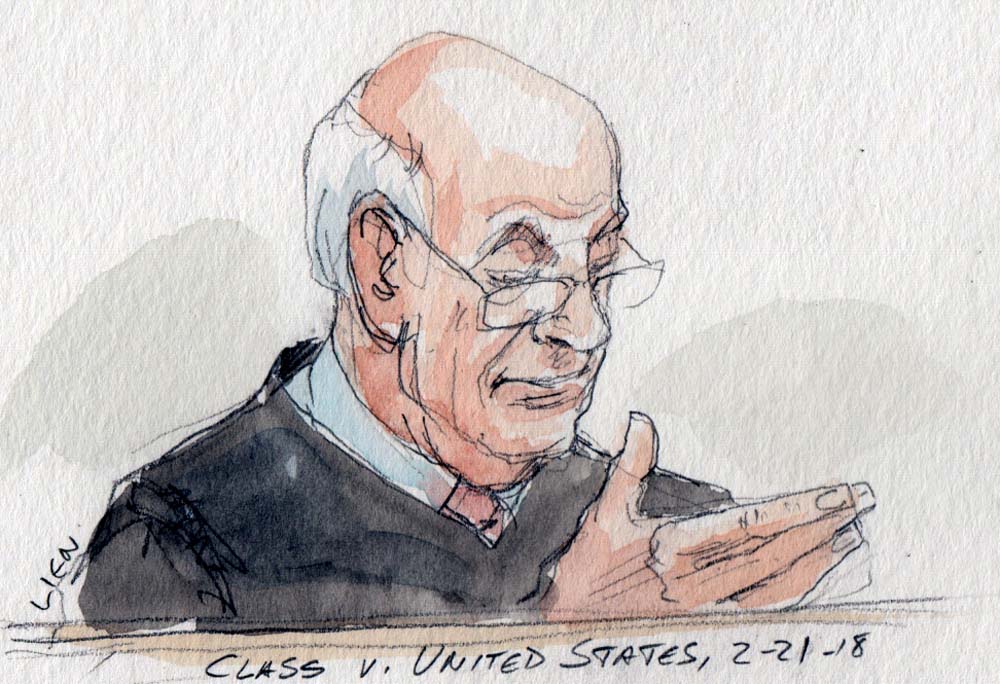The many Stephen Breyers

This article is part of a series of tributes on the career of Justice Stephen Breyer.
Deanne E. Maynard is co-chair of Morrison & Foerster’s appellate and Supreme Court practice and a former assistant to the solicitor general. She clerked for Breyer during the 1994-95 term.
I had the good fortune to clerk for the justice during his first term on the Supreme Court. To me, he’ll always be Justice Breyer, the mentor. But I admire other Justice Breyers as well.
The pragmatist. Justice Breyer is ever conscious that the court’s decisions impact real people. So he considers the practical implications, taking into account not only the law, but also what makes sense and what is just. He generally eschews bright-line rules in favor of flexible tests that allow judges to exercise judgment based on the particulars of a case. That taught me, as an advocate, to emphasize why the law is on my client’s side and why it should be.
The public servant. The justice believes deeply in government institutions, and he wants people to have faith in them, especially the Supreme Court. This manifests itself in many ways: how he writes opinions, what he says in public speeches, and his questioning of advocates. When he announces decisions from the bench, he explains them so courtroom visitors can understand what the court has decided and why. His very first opinion announcement sounds like he’s talking directly to the public gallery: “This case involves a local termite inspection contract made in Alabama. The contract had a clause, requiring the arbitration of disputes. When respondents bought the house, they found it swarming with termites. So, they brought a lawsuit in state court …”
The legal enthusiast. When the justice wants to talk about a case, he comes out of his office and launches into it with the first person he encounters. He’s genuinely interested in what others have to say, and he relishes bouncing ideas off anyone handy. This could be one of his law clerks — although not necessarily the one assigned to that particular case. It often led to our scrambling to locate whichever of our co-clerks was on the case, so they could answer the justice’s many questions. His practice also caught other justices’ law clerks by surprise — the norm was for clerks visiting from other chambers to politely depart if a justice appeared. Not so with Justice Breyer. If another justice’s law clerk was hanging out in our offices, and Justice Breyer came in to talk, he would want the clerk to stay and participate, so he could hear what they thought about whatever he was thinking about.
The bon vivant. The justice has other passions, including cooking. During the pandemic, he was at home with his wife, his daughter, and three grandchildren and was doing some of the cooking. After he shared his Italian pot roast recipe in a news article, my husband was planning to make it. But we were confused because, while the article mentioned the importance of spices, it didn’t specify how much to use. So I emailed the justice, who replied right away: “I don’t know why the spices were left out of the list. You need them: break up a cinnamon stick, about 12 small allspice berries, 4 cloves, and grind them all up in a coffee grinder. That should work. They add a lot of flavor.” Indeed they did.
The self-effacing humorist. The justice doesn’t take himself too seriously. When he announced that first decision involving the termites, he forgot to note the separate opinions. A couple of justices whispered, “the dissents, the dissents.” Justice Breyer just laughed, and said “Sorry, I don’t know how I forgot that.” And everyone laughed along with him.
* * *
I’ll always remember the lessons learned from Justice Breyer and wish him many laughs in retirement.
Posted in Tributes to Justice Breyer